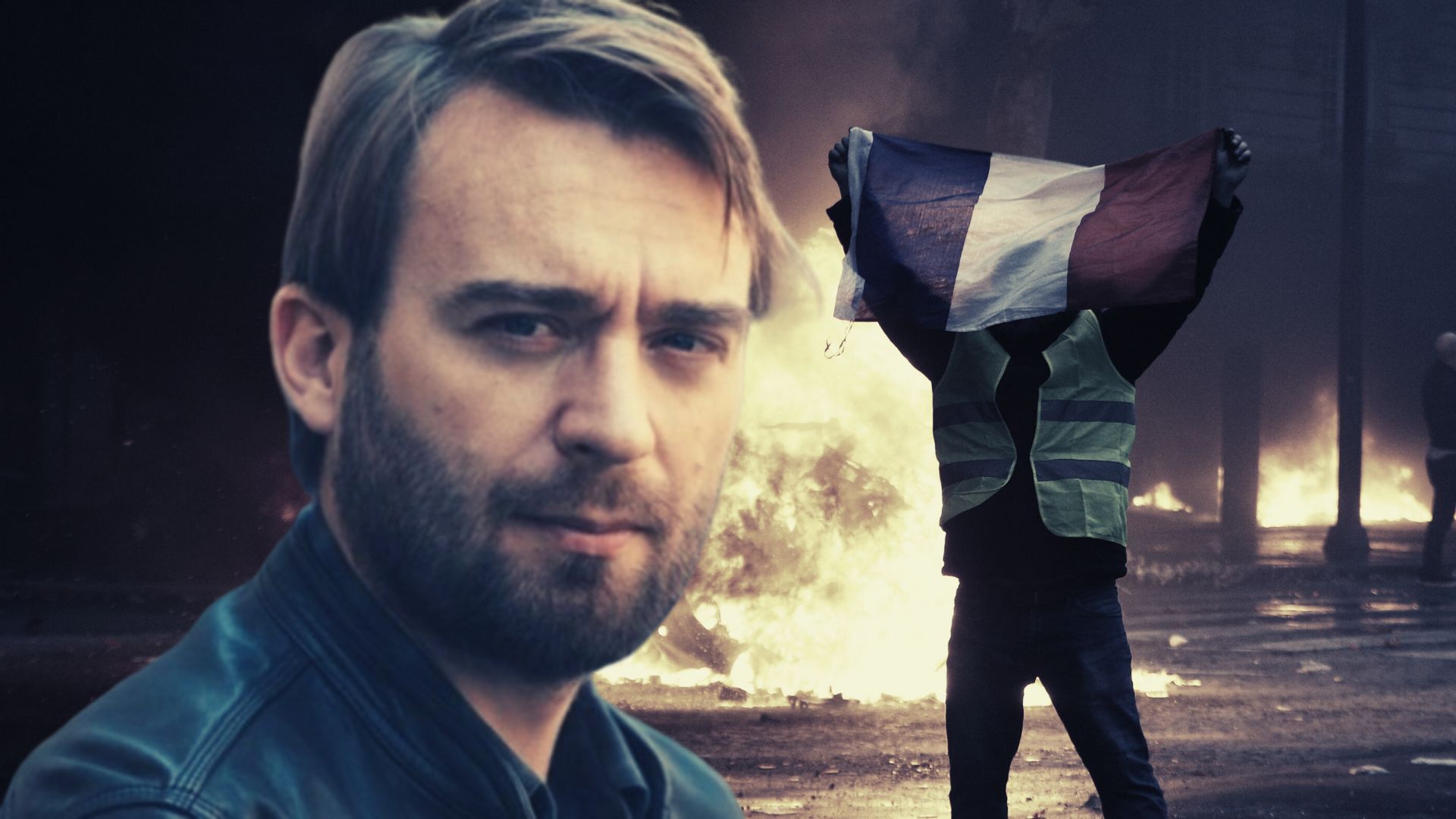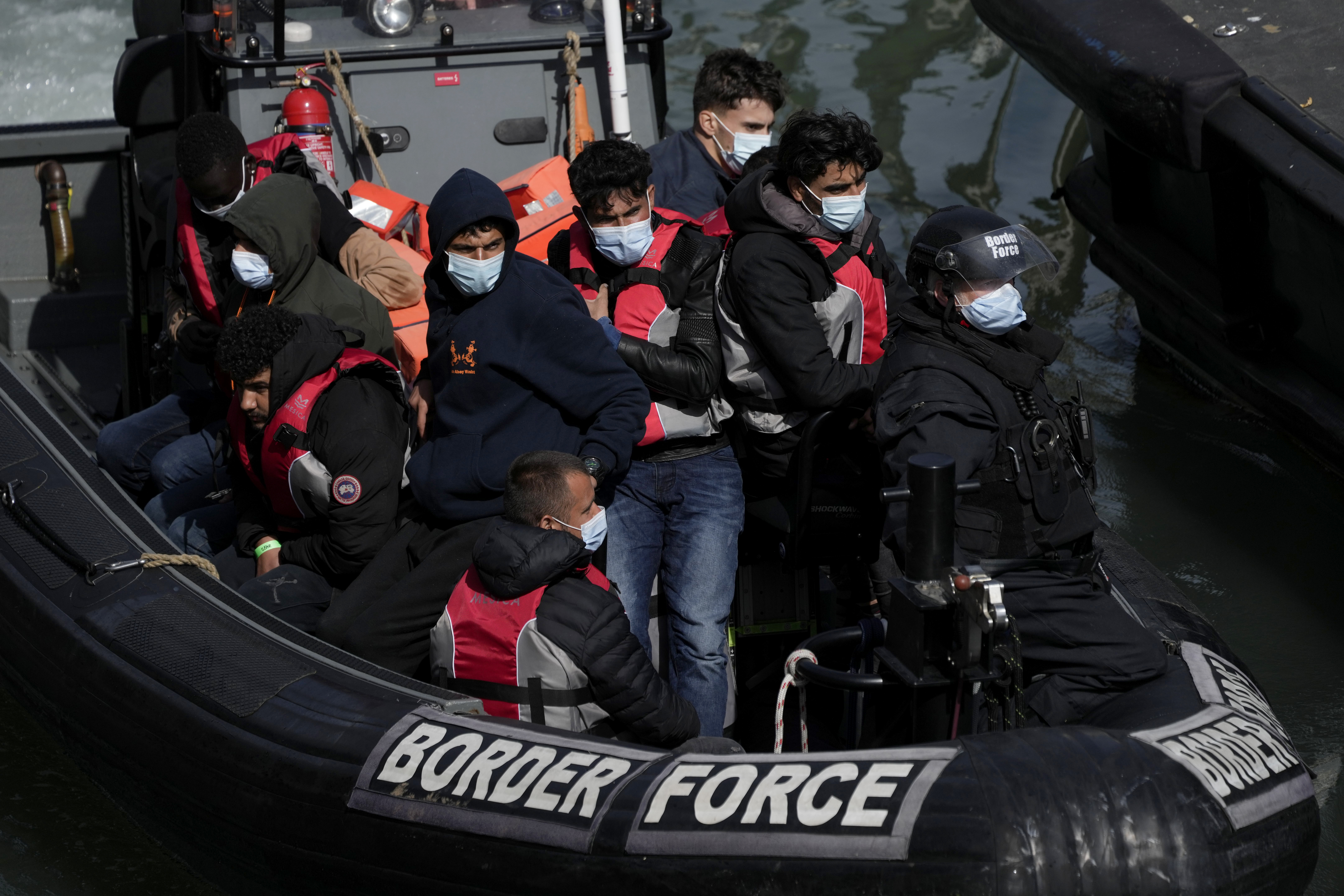An exclusive interview with French journalist, essayist, and novelist Laurent Obertone, author of the prophetic bestseller novel “Guerilla – The day everything went up in flames” (in French: “Guérilla – Le jour où tout s’embrasa”) and of several essays on the violent and totalitarian drift of French society (“La France Orange Mécanique” – Clockwork Orange France, “La France Big Brother” – Big Brother France, etc.). Following its big success in France, the novel “Guerilla” has also been translated into German, Italian, Hungarian, and Japanese, and will soon be published in Spanish
You are the author of several bestsellers in France, including the famous “La France Orange mécanique,” published in 2013, which documents insecurity in France based on local press publications that are rarely picked up at the national level. You then published, among other titles, the novel “Guerrilla” in 2016. This novel takes place over three days in a France sinking into civil war after yet another violent incident between thugs and police in an “ethnic” suburb. These are undoubtedly your two most often quoted works and the most vilified by the French political and media mainstream, but many see the first one as a realistic assessment of the current situation and the second one as a plausible prognosis for the future. Very recently, while reacting to Interior Minister Gérald Darmanin’s comments on the share of foreigners in crime, you said: “The path we are following today is one of chaos.” So, in your opinion, nothing has changed in France since the publication of “La France orange mécanique” and “Guerilla”?
Unfortunately, things have gotten pretty bad. Violence against persons has continued to rise sharply, reaching a record of 900 assaults per day, including 120 assaults involving bladed weapons. This is according to the Interior Ministry’s figures. Although they only take into account crimes for which complaints are filed, they still show 220 daily cases of sexual violence in France on average. Homicides and attempted homicides have been rising sharply in recent years. After decades of mass immigration, France has never had so many people in jail and so many illegal aliens on its territory.
The president of the republic in your novel “Guerrilla,” who gets brutally assassinated by thugs while trying to mediate, was very reminiscent of François Hollande, but he could just as easily remind us of Emmanuel Macron. The latter’s former Minister of the Interior Gérard Collomb, who warned against the risk of civil war because of mass immigration when he resigned in 2018, has criticized the welcoming of the Ocean Viking and its illegal immigrants in an interview for the Le Point weekly, saying that “by welcoming the Ocean Viking, we open a breach.” In this interview, he describes President Macron as being very much in favor of welcoming so-called “migrants,” i.e., illegal immigrants. Do you really think that the reception of the Ocean Viking opens a new breach and is a step further toward chaos in France?
The Ocean Viking is just a drop in the bucket: In 2021, there were 121,554 applications for asylum filed, as well as 279,925 residence permits and 733,070 visas issued. That is well over a dozen Ocean Vikings per day. And all this in a perfectly legal way, without counting the irregular immigrants who are very rarely deported. The French administration has been organizing such mass immigration for quite a long time, despite the fact the French people never wanted it and despite its consequences in terms of security, social cohesion, or standard of living being dramatic and incalculable.
Isn’t it encouraging, though, that a former interior minister is now sending out the same message as you?
His courage comes too late. He now admits that he preferred to let a dangerous situation fester rather than risk telling the truth and therefore – it is he who says it – getting Marine Le Pen elected. This is exactly what prevents any debate and any serious political reaction to insecurity and immigration: There is permanent blackmail with the threat of the “far right,” leading in the end to realistic French people remaining silent so as not to be accused of “playing into the hands” of the National Rally. Our elites have given up on the truth and prefer to lie to their people. Since they are unable to fulfill the basic missions of the state, their legitimacy is in question.
Trials were held this year in relation to the Paris and Nice terrorist attacks of 2015 and 2016, and it looks like there are fewer such attacks in France, or at least there are no longer large attacks with such death tolls. Don’t you think that France is winning the fight against Islamic terrorism? Or do you rather think that the threat of radical Islam and its jihadist-terrorist form, which we see playing an important role in the outbreak of the civil war described in your novel “Guerrilla,” remains at the same level?
The fears of the intelligence community have not waned. Many people are listed as “risky” and apart from listing them, we are just waiting to see what happens. There are many isolated acts, committed by allegedly “disturbed” persons. These incidents make less noise in the media, but in the long run, they make just as many victims. And this “insecurity,” which translates into multiple “gratuitous” lynchings or attacks with bladed weapons, is a form of ordinary, trivialized terrorism that makes many of our cities dangerous.
In his book “Tout ce qu’il ne faut pas dire” (Everything you must not say) published the same year as “Guerilla,” gendarmerie general Bertrand Soubelet wrote: “In the large urban areas of France, there are stocks of illicit weapons that are the remnants of the wars in Central Europe (in the Balkans). What frightens us, the gendarmes, is that those stocks of weapons, which are lying dormant at the moment, will one day get into the hands of determined and organized people.” Since 2016, have the French authorities acted to recover these stocks of weapons, or are they still in the hands of these “rebellious, misguided children who have lost their way and are in need of guidance,” and among whom “the jihad does its business,” as they are described by General Soubelet?
The French state is only strong with the weak, with those who fear its wrath, the police, and the justice system. This is absolutely not the case with these gangs and in the suburbs, which are breeding grounds for criminals and jihadists. Obviously, they have no respect for firearms legislation, which is only designed to disarm honest citizens, as honest citizens are the only real threat to our rulers.
In “Guerilla,” the French army does not intervene, or at least not massively, to restore order. This is because it is feared that the troops of immigrant and/or Muslim origin will join the mobs of armed “youth” who hate France and the “Gallic” French. Is this what you think would happen in the event of a civil war in France? Has the French army’s lack of cohesion deteriorated to such a point?
This is a major fear of the military commanders, who have to deal with a lot of sectarian tensions in the army’s ranks. But the army is above all made unable to act by the moral prohibitions that bind our elites: it is morally unthinkable to send in the troops against our neighborhoods and the criminals who thrive there, who are often of French nationality and who have been presented to us for several decades as “victims of society.” Even the police have orders to restrict their pursuits and to avoid certain neighborhoods so as not to set fire to the powder.
President Macron and his current minister of the interior now want to intensify the distribution of “migrants” throughout the country, including in rural areas. Such migrant centers also play a role in France’s three-day descent into civil war described in your novel “Guerrilla.” It is a civil war against which many leading politicians, including Presidents François Hollande and Emmanuel Macron, have warned. How do you explain the fact that the French political class complains of the consequences but cherishes their causes so much? What can be their motives?
There is an old economic belief: The more people there are, the more the country’s GDP will increase, so there will be more pieces of the cake to share. Some business bosses are very keen on low-cost labor. But the most profound belief is moral: Our elites, still colonial in mentality, are convinced that human beings from all over the world are interchangeable, that all you have to do is give anyone a good school, welfare benefits, and a city park to make them good French citizens, even better than our dusty natives. This is obviously a fantasy: Countries are the products of peoples, not the other way around. But, as we have said, it is the nature of Utopians not to be bothered with such realities.
After the horrendous murder of Lola, that 12-year-old girl who was raped, tortured, and murdered by an Algerian woman who had been left free to move around despite a deportation order, you said that if nothing is done now, nothing will ever be done. One month later, do you see some positive change? Is anything being done now?
Absolutely not. There are new victims all the time. Immigration is not questioned, and neither is the justice system. We all know very well that deportation orders are not going to be enforced any better than before. The talk is mostly about new ways to accommodate migrants. The more time passes, the less reversible the situation will be. Unless there is an economic or social accident, French society will continue its drift toward fragmentation and regression.






